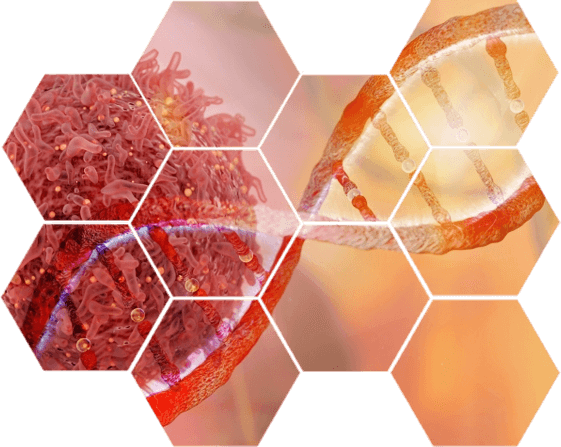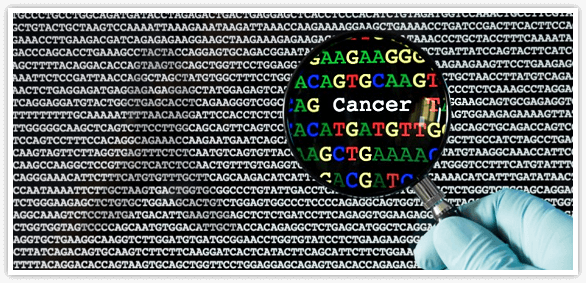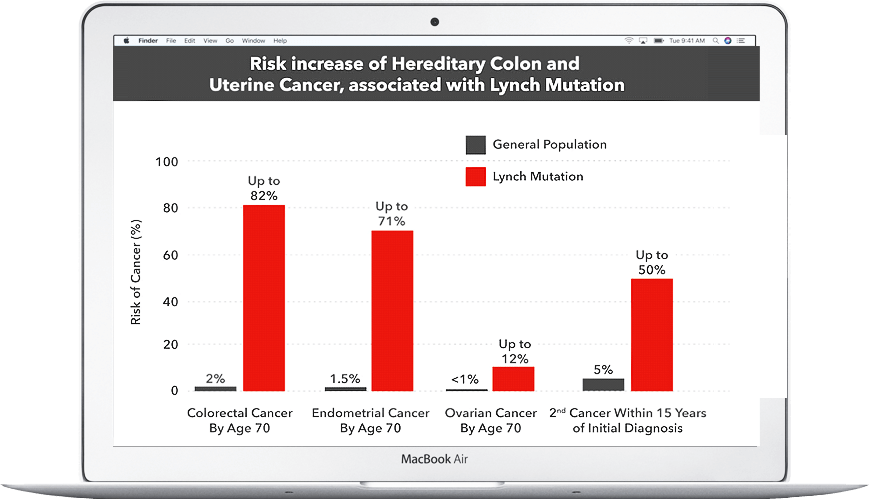Comprehensive Cancer Risk Assessment. Unique to your DNA.
Our state-of-the-art, CAP and COLA accredited and CLIA certified laboratory utilizes Next-Generation-Sequencing to screen for genetic mutations. These mutations are known to affect an individual’s risk of developing hereditary cancer.
Results from the Hereditary Cancer Screening, along with the treating provider’s expertise, enables physicians to make better informed clinical decisions for their patients.
Free genetic counseling session with the purchase of your Hereditary Cancer Screening genetic test.
Buy Now
Hereditary Cancer Genomics is a molecular screening test that looks for specific inherited mutations, or genetic changes in a person’s germline. Mutations can have harmful, beneficial, neutral or uncertain effects on health. Inheriting genetic mutations that are harmful may increase a person’s risk of developing a disease such as cancer.
Cancer is a disorder in which the normal control of cell growth is lost, resulting in an abnormal proliferation of the affected cells. Inherited genetic mutations may increase a patient’s risk of developing cancer in numerous ways and depends on the atypical functions of the mutated parent gene. Genetic mutations involved in mismatched repair of damaged DNA are particularly likely to lead to a higher cancer risk.

Inherited mutations are thought to play a role in 5-10% of all cancers. These particular conditions are considered hereditary and appropriate genetic testing may be used to determine an individual’s risk.
At Advanced Genetic Solutions, we’re your partner, giving you actionable genetic information and the help to do more with it.
*Specific eligibility will be determined based on each individual’s needs


Increased surveillance can identify cancer at its earliest, most treatable stage
Genetic information can benefit familial relatives
Some cancers are more responsive to specific therapeutic agents and cancer medications
Genetic test results can inform surgical decisions
Risk-reducing surgery, lifestyle changes and/or chemoprevention can significantly reduce the chance of potential cancers
Relatives at high risk can undergo enhanced surveillance, while those without the family variant may be able to avoid unnecessary procedures
Genetic information may qualify patients for participation in clinical trials or research studies
is a powerful tool that can help your health care provider better estimate your chance of developing cancer in your lifetime.
While no genetic test can say whether you will develop cancer for sure, with this simple saliva-based test, you and your physician can find out if you have a higher risk than most people.

Certified genetic counselors will be able to discuss all options with patients regarding their molecular test results.